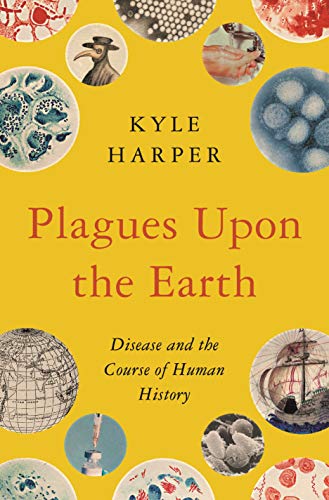21 Infectious Disease Books That Experts Trust and Recommend
Insights from Bill Gates, Christina Stage Break Warren, and Clara Jeffery spotlight these Infectious Disease books shaping global health understanding







What if the stories behind infectious diseases could reveal the hidden failures and triumphs of public health? Infectious diseases have shaped human history, disrupted societies, and challenged science in ways few other forces have. Today, understanding these diseases matters more than ever as experts grapple with pandemic risks and global health threats.
Figures like Bill Gates, whose decades of work in vaccine development and pandemic preparedness have saved millions of lives, and Christina Stage Break Warren, a senior cloud advocate who reflects on the AIDS crisis through powerful narratives, provide a lens into the critical value of infectious disease literature. Clara Jeffery, editor-in-chief of Mother Jones, underscores the importance of learning from past epidemics to inform future responses.
While these expert-curated books provide proven frameworks, readers seeking content tailored to their specific infectious disease interests, experience levels, and goals might consider creating a personalized Infectious Disease book that builds on these insights, offering customized learning paths and practical knowledge for today’s complex health landscape.
Recommended by Christina Stage Break Warren
Sr Cloud Advocate, Microsoft, media and tech expert
“@jsnell @monkeydavid Also the HBO film is one of the best ever. I saw it as a child and then read the book. I think I was 9 or 10. It’s one of the rare books I have a physical and kindle copy of to this day.” (from X)
by Randy Shilts··You?
by Randy Shilts··You?
What happens when investigative journalism meets the early AIDS crisis? Randy Shilts, a pioneering openly gay reporter for the San Francisco Chronicle, chronicles the first five years of the epidemic with a sharp focus on how government agencies, public health officials, and scientists responded—or failed to respond. You’ll gain detailed insight into the political and social obstacles that hindered early containment efforts, alongside vivid personal stories and institutional critiques. The chapters dissect moments like the CDC’s initial hesitance and the media’s role in shaping public perception, making it essential for anyone interested in medical history, public policy, or health advocacy.
Recommended by Rajeev Chandrasekhar
Tech investor and BJP MP
“Reading this very interesting book by Ayjchan and Matt Ridley that tries to investigate origins of COVID-19 that caused the last 24-25 months of nightmare for the world and all of us.” (from X)
by Matt Ridley, Alina Chan··You?
by Matt Ridley, Alina Chan··You?
Matt Ridley, a fellow of the Royal Society of Literature and Academy of Medical Sciences, teams up with scientist Alina Chan to probe one of the most perplexing questions of recent times: the origin of COVID-19. You gain an in-depth look at virology labs, the behaviors of bats, and the genetic detective work that unravels the virus's mysterious path to humans. The book meticulously examines gaps in the outbreak's timeline and explores both natural emergence and lab-leak theories, especially through detailed analysis of 2019 events and virus genetics. If you're determined to understand the complexities behind pandemics and infectious disease origins, this book offers a thoughtful, investigative narrative without oversimplifying the science.
by TailoredRead AI·
This personalized AI book on infectious disease delves into a wide range of topics tailored specifically to your background and objectives. It explores the science behind pathogens, epidemiology, immune responses, and public health interventions with a focus that matches your interests and goals. By integrating core principles with your specific learning needs, it offers a clear pathway through complex information, making challenging concepts accessible and relevant. This tailored approach helps you build a solid understanding of infectious diseases, from outbreak dynamics to prevention methods, all framed around your unique questions and priorities.
Recommended by Laura McInerney
Co-Founder of TeacherTapp, former SchoolsWeek editor
“@langtrygirl It’s a really good book. You’ll love one character: a little public health woman, around 40, who was completely correct about it all and kept being ignored. I almost want this as a tattoo:” (from X)
by Michael Lewis··You?
by Michael Lewis··You?
Michael Lewis draws from his extensive background in narrative nonfiction to explore the tangled responses to the COVID-19 pandemic in this sharp examination. You gain insight into how a small group of public health experts, including a local official who saw what the CDC missed and a secretive team dubbed the Wolverines, tried to confront denial and misinformation at the highest levels. The book offers a unique perspective on pandemic preparedness and governmental inertia, particularly through vivid profiles and case studies like a thirteen-year-old's model of airborne disease transmission. If you're interested in the intersection of science, public policy, and crisis management, this book offers an illuminating, if sobering, look.
Recommended by Ophelia Dahl
Global Health Advocate and Co-founder of Partners in Health
“A beautiful and absorbing book about the history of polio. Wunsch tells the pressing story of the race to develop effective new technologies to ventilate patients amid a deathly global pandemic. It is also a beautiful story of accompaniment and of doing whatever it takes to keep thousands of patients alive—one person at a time.”
by Hannah Wunsch··You?
After years as a critical care physician and researcher, Hannah Wunsch developed a detailed narrative tracing how the 1952 Copenhagen polio epidemic transformed medical care. You learn how mechanical ventilation and intensive care units emerged from desperate attempts to save patients with respiratory failure, with vivid accounts from those on the front lines. This book suits anyone interested in the history of medicine or the evolution of critical care, providing insight into the breakthroughs that underpin modern life support systems. For example, chapters recount how clinicians improvised ventilators and organized care teams in real time, a story that resonates amid recent global health crises.
Recommended by Adar Poonawalla
CEO of Serum Institute of India
“He has saved millions of lives through his work at Gates Foundation supporting the vaccine industry including Serum Institute over decades. I enjoyed reading Bill Gates' latest book; extremely insightful and optimistic that if world leaders take note, we may prevent the next pandemic.” (from X)
by Bill Gates··You?
by Bill Gates··You?
Drawing from decades of philanthropic leadership focusing on global health, Bill Gates examines how the world can prepare for and prevent future pandemics. You’ll gain insight into the science behind infectious diseases, including respiratory viruses, and understand the importance of coordinated global response systems. Gates outlines practical steps governments and private sectors can take, such as investing in vaccine innovation and establishing international task forces, illustrated by examples from the COVID-19 pandemic. This book suits anyone interested in public health policy, pandemic preparedness, or the intersection of science and global cooperation.
by TailoredRead AI·
This tailored book explores the complex world of infectious diseases with a focus on accelerating your understanding through focused, actionable steps. It covers essential concepts such as pathogen biology, transmission dynamics, and public health responses, all aligned to your specific background and goals. By concentrating on your unique interests, it reveals how to navigate scientific literature, interpret epidemiological data, and apply practical knowledge in real-world scenarios. This personalized approach brings clarity to challenging topics while fostering critical thinking and informed decision-making in infectious disease mastery.
Recommended by Kaleigh Rogers
Reporter covering politics, tech, science
“@rachsyme Spillover is a fantastic book though. I'd also recommend Pandemic and/or The Fever by @son...” (from X)
by David Quammen··You?
by David Quammen··You?
After analyzing multiple zoonotic outbreaks around the world, David Quammen developed a compelling narrative that connects the dots between wild animal reservoirs and emerging human diseases. You gain detailed insights into the process of spillover, learning from vivid field accounts of tracking viruses in bats, monkeys, and gorillas across continents. Quammen's exploration goes beyond biology to probe ecological and human factors fueling pandemics, making it especially relevant if you're interested in the origins and future risks of infectious diseases. This book suits those seeking a deep understanding of how animal pathogens cross into humans and the global implications thereof.
Recommended by The Wall Street Journal
“[Catharine Arnold] is good at looking at civilians as well as troops and their nurses and doctors and at teasing out the human side of the catastrophe… powerful stories of ordinary people.”
by Catharine Arnold··You?
What happens when a historian with a background in psychology and journalism turns her attention to one of modern history's deadliest pandemics? Catharine Arnold dives into the 1918 Spanish Flu by weaving together vivid eyewitness accounts from soldiers, nurses, and civilians, revealing the human toll behind the staggering death counts. You learn not just about the virus itself, but about the social and political responses, from wartime censorship to overwhelmed medical services, giving you a layered understanding of pandemic dynamics. If you want to grasp how infectious diseases ripple through societies and shape history, this book offers a meticulously researched, narrative-driven perspective that’s especially suited for those interested in the intersection of medicine, history, and human experience.
Recommended by Jeff Dean
Senior Fellow & SVP, Google AI Research and Health
“Thanks for the pointer, @joetimmons79! Also, looks like John Barry, the speaker in the video, is an author, & has an interesting looking book about the 1918 flu (if flu pandemic books while social distancing is your cup of tea: I've added to my queue):” (from X)
by John M. Barry··You?
by John M. Barry··You?
What started as a deep dive into the 1918 influenza pandemic became a detailed exploration of how science, politics, and society collide during a health crisis. John M. Barry, with his extensive background advising federal pandemic responses and his award-winning historical storytelling, guides you through the devastating flu outbreak that killed millions worldwide. You'll gain insight into the interplay of medical knowledge, public trust, and government decisions, especially through chapters detailing the military’s role and the public health communication challenges. This book suits anyone looking to understand the roots of pandemic response and how past lessons still resonate today.
Recommended by Bill Gates
Co-Founder & Former CEO of Microsoft
by William H. Foege··You?
by William H. Foege··You?
The methods William H. Foege developed while leading the Smallpox Eradication Program reveal a compelling blend of bold strategy and grassroots public health work. Drawing from his firsthand experiences in some of the world's most challenging environments, Foege offers detailed insights into the vaccination tactics that ultimately ended smallpox. You’ll encounter vivid accounts of coordinating international efforts, navigating political obstacles, and innovating under pressure, especially during the containment campaigns in India. This book suits anyone interested in global health, epidemiology, or understanding how targeted public health initiatives can achieve monumental results.
Recommended by Sue Desmondhellmann
Former CEO at Gates Foundation
“Here’s one for your summer reading list: The Fever by Sonia Shah is a terrific book that puts malaria work into historic context, one of my favorite genres of writing.” (from X)
Sonia Shah’s background as a science journalist with a deep interest in human rights drives her to explore malaria’s persistent grip on humanity across centuries. In this book, you’ll uncover how malaria has shaped history from the Panama Canal’s construction to colonial expansions, learning about the interplay of biology, politics, and global health efforts. Shah’s narrative invites you to understand why, despite longstanding knowledge and efforts, malaria continues to infect millions annually, illustrating this with vivid reporting from diverse regions like Malawi and India. If you want to grasp the complex forces behind one of the world’s deadliest diseases, this book offers a richly detailed, historical perspective that’s both sobering and enlightening.
Recommended by Jon Najarian
Co-Founder @Investitute, CNBC Anchor
“I believe both the corona virus and ebola have a bat connection. Scary, but great book on ebola: Hot Zone by Richard Preston” (from X)
by Richard Preston··You?
by Richard Preston··You?
Drawing from his extensive journalism career including decades at The New Yorker, Richard Preston delves into the terrifying emergence of the Ebola virus in this gripping account. You gain a vivid understanding of how a highly infectious pathogen can jump from remote African rainforests to urban centers, underscored by detailed narratives about a secret military response team. The book explores virology, epidemic containment, and the human stories behind outbreaks, making it suitable for those interested in infectious diseases and public health crises. While it reads like a thriller, it offers a sobering look at the real dangers of viral epidemics and the complexities of containment efforts.
Recommended by Elizabeth Kolbert
Pulitzer Prize winner, author of The Sixth Extinction
“Crisis in the Red Zone reads like a thriller. That the story it tells is all true makes it all more terrifying, and there’s no one who could tell it better than Richard Preston.”
by Richard Preston··You?
During the harrowing 2013–2014 Ebola epidemic, Richard Preston offers a detailed chronicle of one of the deadliest viral outbreaks in history, blending scientific rigor with vivid storytelling. You’ll gain insight into the complex dynamics of virus transmission, the ethical dilemmas faced by medical teams, and the global response mechanisms, particularly through chapters illustrating the rapid mutation and spread of Ebola across continents. This book suits those seeking a deep understanding of epidemic management, public health challenges, and virology, emphasizing the human stories behind the statistics. Its nuanced portrayal of the outbreak’s scope and the ongoing threat of emerging viruses makes it a sobering study rather than sensationalism.
Recommended by Science
“An easily approachable yet factually rich narrative. Oshinsky provides a very readable and enlightening history that also can be appreciated as good storytelling.”
by David M. Oshinsky··You?
by David M. Oshinsky··You?
David M. Oshinsky, a distinguished historian at the University of Texas, draws from extensive research and newly available personal papers to tell the gripping story of America’s battle with polio in the 1950s. You’ll explore the fierce rivalry between vaccine pioneers Jonas Salk and Albert Sabin, alongside the role of the National Foundation for Infantile Paralysis in shaping public health fundraising and drug approval processes. The book offers detailed insights into the social fears of the era and how polio, although less widespread than feared, cast a shadow over daily life. This narrative suits anyone interested in medical history, vaccine development, or the intersection of science and society.
Recommended by Raheel Khursheed
Co-founder Laminar Global, ex-Twitter
“It is here & it looks glorious - Vidya Krishnan’s labour of love The Phantom Plague! Can’t wait to dig into this important book. Order yours now.” (from X)
by Vidya Krishnan··You?
by Vidya Krishnan··You?
Vidya Krishnan’s extensive journalism career, including a Neiman Fellowship at Harvard, drives this deep exploration of tuberculosis's social and medical history. You’ll uncover how TB, once controlled in the West, resurged globally due to factors like government failures, philanthropy missteps, and drug resistance, with vivid accounts from 19th-century New York to modern Mumbai. The book offers granular insights into how science, politics, and society intertwine in combating infectious diseases, especially drug-resistant TB. If you want to understand the complexities behind infectious disease spread and control beyond biology, this book sharpens your awareness of systemic health challenges.
by Paul Farmer·You?
Drawing from over fifteen years as a physician-anthropologist working with AIDS and tuberculosis in impoverished regions, Paul Farmer exposes how infectious diseases disproportionately afflict the poor. You’ll gain insight into the social and economic forces behind diseases like HIV, TB, and cholera, challenging common narratives that blame victims for their illness. The book explores how public health strategies often miss these broader contexts and offers perspectives on what healthcare providers can do amid overwhelming challenges. If you’re looking to understand infectious disease beyond biology and into the realm of social justice, this book provides a sobering yet hopeful lens.
Recommended by Joe Pags Pagliarulo
Syndicated Talk Show Host
“Author and journalist Sharri Markson up next on her book "What Really Happened in Wuhan." You must see this interview. Information you'll hear nowhere else.” (from X)
by Sharri Markson··You?
What if everything you thought you knew about the origins of Covid-19 was wrong? Sharri Markson, a Walkley Award-winning investigative journalist, digs deep into the mysteries surrounding the Wuhan virus outbreak, drawing on exclusive access to whistleblowers, classified documents, and firsthand accounts. You’ll learn about the hidden laboratory experiments, governmental cover-ups, and the intense political battles over the narrative. The book uncovers the complex web of science, politics, and misinformation, providing detailed insights into how the pandemic unfolded in Wuhan and its global consequences. This work is best suited for those seeking a rigorous, investigative perspective on pandemic origins rather than a purely scientific or medical analysis.
by Laurie Garrett··You?
by Laurie Garrett··You?
Laurie Garrett's decades as a global health expert and Pulitzer Prize-winning journalist shaped this detailed account of how infectious diseases emerge and spread in a globally connected world. You’ll gain a chronological understanding of epidemics, from historical outbreaks to modern challenges, supported by insights from virology, molecular biology, and disease ecology. The book examines systemic imbalances contributing to new diseases and offers thoughtful analysis on prevention without resorting to alarmism. If you seek to grasp the complex interplay between human activity and microbial threats, this dense yet illuminating work will deepen your perspective, especially through chapters that dissect case studies of past epidemics.
Recommended by Tom Holland
Historian and author
“From his predictably brilliant new book on the history of disease, Plagues Upon The Earth” (from X)
Kyle Harper, a historian specializing in the classical world, offers a sweeping exploration of humanity's relationship with infectious disease, tracing its impact from our earliest origins through to modern pandemics. The book delves deep into how evolutionary forces and technological advances have shaped disease dynamics, linking plagues to major historical forces like slavery, colonialism, and capitalism. You'll gain an understanding of how disease influenced the rise of farming, urbanization, and global population growth, alongside the persistent tensions between human progress and microbial threats. This dense yet engaging narrative suits anyone curious about history, epidemiology, or the socio-economic patterns shaped by disease.
Recommended by Paul Graham
Co-Founder of Y Combinator
by Nicholas A. Christakis MD PhD··You?
by Nicholas A. Christakis MD PhD··You?
Nicholas A. Christakis challenges the conventional wisdom that pandemics are merely medical events by weaving together sociology, epidemiology, and history to reveal how the coronavirus reshaped society and human behavior. You gain insights into how infectious diseases interact with our social networks, influence public policy, and alter cultural norms, supported by compelling examples like historical epidemics and data-driven analyses from his Human Nature Lab. This book is especially suited for those interested in understanding the broad societal ripple effects of health crises, from policymakers to sociologists and health professionals.
Recommended by An Taghrid Akthar
Authority voice on Twitter
“Great book” (from X)
by Matt McCarthy··You?
by Matt McCarthy··You?
Matt McCarthy, an assistant professor at Weill Cornell and frontline physician at NewYork-Presbyterian, draws from his direct experience in clinical trials to map the urgent fight against antibiotic-resistant bacteria. You’ll gain insight into the history of antibiotics, from Fleming’s penicillin discovery to modern CRISPR gene editing, alongside gripping patient stories illustrating the stakes of this race. This book is especially relevant if you want to understand how medical science confronts evolving microbial threats and the ethical challenges involved. The chapter on soil-based drug discovery and the profiles of patients like Remy and Donny provide concrete examples that ground the complex science in human reality.
Get Your Personal Infectious Disease Guide Fast ✨
Stop sifting through dozens of books. Get tailored insights that fit your needs in just 10 minutes.
Trusted by infectious disease professionals and global health leaders
Conclusion
Together, these 21 books weave a rich tapestry of infectious disease history, science, and policy, highlighting the interplay of biology, society, and human resilience. They reveal how epidemics have shaped medical innovation, global cooperation, and social justice, offering lessons both cautionary and hopeful.
If you’re navigating pandemic preparedness or public health policy, starting with Bill Gates’ strategic insights in How to Prevent the Next Pandemic paired with Michael Lewis’s The Premonition offers a grounded understanding of crisis management. History buffs and medical professionals alike will find value in John M. Barry’s The Great Influenza and Kyle Harper’s sweeping Plagues Upon the Earth.
Alternatively, you can create a personalized Infectious Disease book to bridge the gap between general principles and your specific situation. These books can help you accelerate your learning journey and deepen your grasp of infectious disease challenges and opportunities.
Frequently Asked Questions
I'm overwhelmed by choice – which Infectious Disease book should I start with?
Start with How to Prevent the Next Pandemic by Bill Gates for a practical overview, or And the Band Played On to understand AIDS history. These provide foundational insights from different angles, preparing you for deeper exploration.
Are these books too advanced for someone new to Infectious Disease?
Not at all. Many titles like The Hot Zone and The Premonition use narrative storytelling to make complex topics accessible, while still offering expert-backed information suitable for newcomers.
What's the best order to read these Infectious Disease books?
Consider beginning with historical accounts like Pandemic 1918 and The Great Influenza, then move to contemporary analyses such as Viral and How to Prevent the Next Pandemic to see evolving challenges and responses.
Do these books assume I already have experience in Infectious Disease?
Most are written for a general audience interested in public health, history, and science, providing clear explanations without requiring prior expertise.
Can I skip around or do I need to read them cover to cover?
You can definitely skip around. Each book stands on its own with distinct focus areas, so pick those that best match your interests or current needs.
How can I apply these expert Infectious Disease books to my specific goals or industry?
While expert books offer broad perspectives, personalized Infectious Disease books can tailor insights to your background and objectives, bridging general knowledge with practical application. Explore creating your own tailored book to get targeted strategies that complement these expert recommendations.
📚 Love this book list?
Help fellow book lovers discover great books, share this curated list with others!
Related Articles You May Like
Explore more curated book recommendations



















